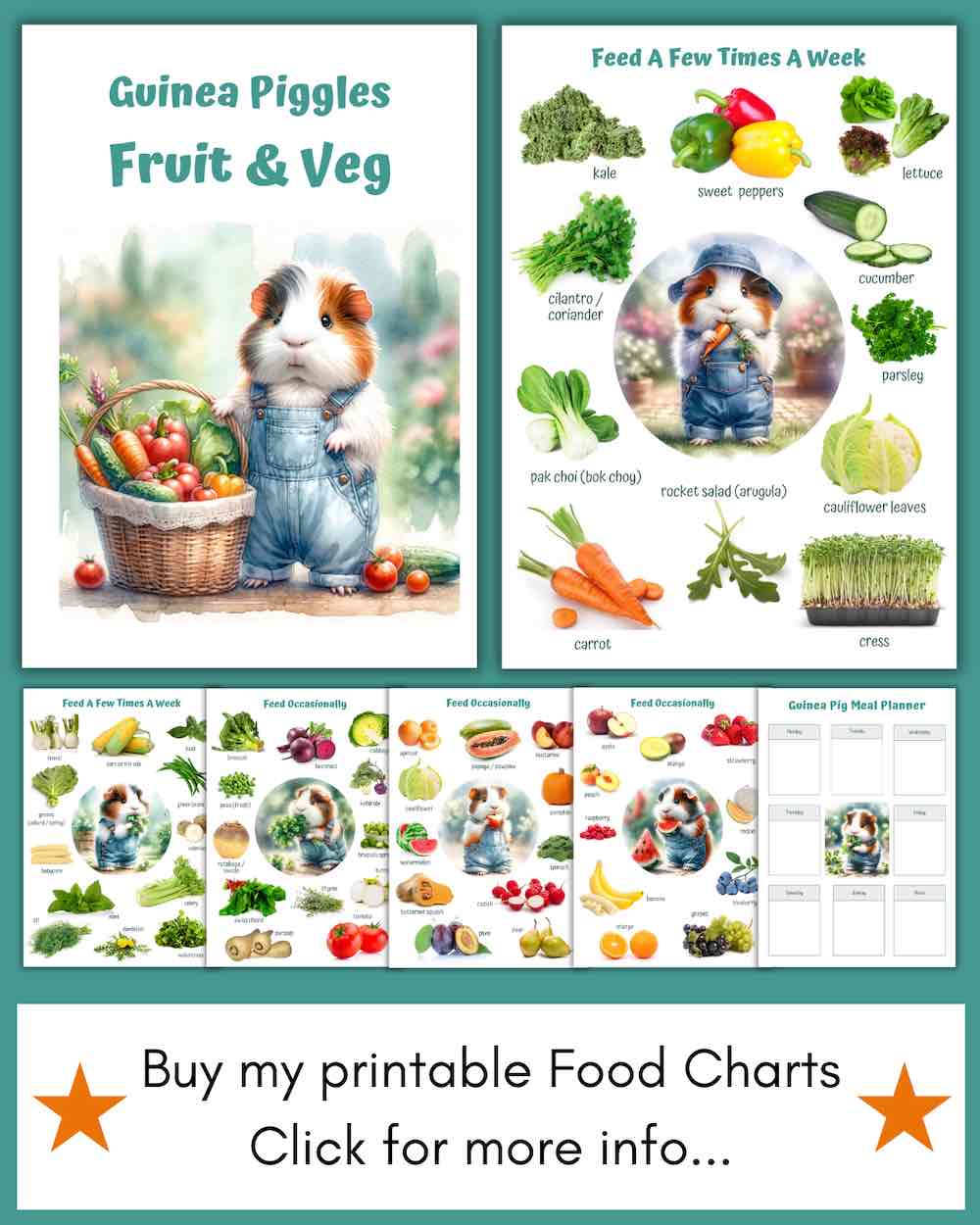Guinea pigs can safely eat watermelon, and most love this sweet, juicy fruit — especially during hot weather. Watermelon is low in sugar compared to many other fruits, contains some vitamin C, and helps keep your guinea pigs hydrated thanks to its high water content. However, it should only be given in small amounts as an occasional treat, not every day.
How to Safely Feed Watermelon to Guinea Pigs
- Feed fresh only: Always offer fresh watermelon — never frozen.
- Remove the seeds: Seeds are not suitable and should be taken out before feeding.
- Skin on or off: Guinea pigs can eat watermelon with the skin on. They usually nibble the juicy flesh and leave most of the rind, but always wash the skin thoroughly to remove any pesticides.
- Small portions: Offer a small chunk or slice per guinea pig a couple of times a week as part of a balanced variety of fruits and vegetables.
- Avoid overfeeding: Too much watermelon can upset their digestion because of its high water content.
⚠️ Warning: Feed watermelon sparingly. While it’s a refreshing treat, giving your guinea pigs too much can cause diarrhoea due to its high water and sugar content. Offer only small portions occasionally as part of a balanced diet.

Benefits of Watermelon for Guinea Pigs
- Hydrating treat – High water content keeps guinea pigs cool and refreshed in hot weather.
- Low in sugar – Less sugar than most popular fruits such as bananas, blueberries or grapes and about the same as corn on the cob.
- Contains some vitamin C – Provides a small boost of this essential vitamin, though not as much as strawberries.

Nutrition Information
| Nutrition | mg per 100g |
|---|---|
| Vitamin C | 4 |
| Calcium | 5 |
| Sugar | 7 |
| Water | 91.6 |
| Fibre | 0.4 |
| Phosphorous | 14 |
Safe Fruits
Full information on safe fruit for guinea pigs and feeding guide ›
🍎 Apple →Read the Apple guide ›
🍌 Banana →Read the Banana guide ›
🫐 Blueberries →Read the Blueberries guide ›
🍇 Grapes →Read the Grape guide ›
🍈 Melon →Read the Melon guide ›
🍓 Strawberries →Read the Strawberry guide ›
🍉 Watermelon →Read the Watermelon guide ›
Safe Vegetables
Full information on safe vegetables for guinea pigs including feeding guide ›
🫑 Bell Peppers → Read the Bell Pepper guide ›
🥬 Bok Choy → Read the Bok Choy (Pak Choi / Chinese Leaf) guide ›
🥦 Broccoli → Read the Broccoli guide ›
🥕 Carrots → Read the Carrot guide ›
🌱 Celeriac→ Read the Celeriac guide ›
🌱 Celery → Read the Celery guide ›
🥬 Collard Greens → Read the Collard Greens guide ›
🌾 Corn on the Cob → Read the Corn guide ›
🥒 Cucumber → Read the Cucumber guide ›
🌼 Dandelion → Read the Dandelion guide ›
🌿 Fennel → Read the Fennel guide ›
🌿 French Beans (Fine Green Beans) → Read the French Beans guide ›
🥬 Kale → Read the Kale guide ›
🥬 Lettuce → Read the Lettuce guide ›
🌿 Spinach → Read the Spinach guide ›
🍅 Tomato→ Read the Tomato guide ›
🍃 Watercress→ Read the Watercress guide ›
Safe Herbs
Full information on safe herbs for guinea pigs and feeding guide ›
🌿 Basil → Read the Basil guide ›
🌱 Coriander (Cilantro) → Read the Coriander guide ›
🌿 Dill → Read the Dill guide ›
🌱 Mint → Read the Mint guide ›
🌿 Parsley → Read the Parsley guide ›
